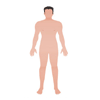Cardiovascular Codes
Code Description Old Price New Price Allowable 10060 I&D of Abscess $88.00 $69.51 10061 I&D Abscess Complicated/Multi $126.00 $107.17 10140 Incision & Drainage $120.00 $99.64 10180 I & D Complex $1,200.00 $1,010.80 11000 Biopsy of Skin Single Lesion $60.00 $31.16 11042 Debridement/Skin/Sub Tissue $180.00 $153.98 11043 Debridement/Subcutaneous Tissue $273.00 $241.87 11100 Biopsy of Skin $83.00 $71.22 11401 EXC B9 LES MRGN XCP SK TG T/A/L 0.6-1.0 CM $113.00 $95.87 11403Read More →



